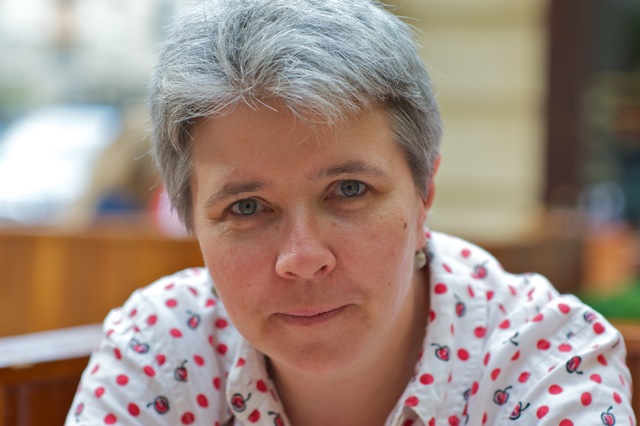COPE AGM and Forum
For the past 18 months, we have been actively reviewing our governance and internal structure at COPE, which has been a lengthy and complex process. The context for this can be found here: http://publicationethics.org/files/Email%20for%20members.pdf.
Members will have the opportunity to comment on the proposed changes at an Annual General Meeting (AGM) to be held on 9 September at 2.00pm at The Montcalm Hotel, 34-40 Great Cumberland Place, London, W1H 7TW (you will also be able to vote by proxy or by returning your voting form by email). Full details of the changes will be circulated with the AGM email notice shortly.
The AGM will be followed by a COPE Forum at 3pm, where we will discuss cases submitted by members. The deadline for submission of cases is 26 August. Cases must be anonymised and should be submitted via the website (go to Cases, and then Submit a case). You need to be logged in as a member to do this. We would like those presenting a case to join the meeting in London but there will be an opportunity to join the meeting by phone.
Survey of our membership coming soon
As a valued member of COPE—either because you have signed up with us personally or because the journal you edit has been registered with us by your publisher—we are seeking your views on all aspects of the organisation - as it is now, and how we can change to improve our offering to you over the next few years.
We have commissioned a professional market research company called Spotlight Market Research to conduct an online survey that will help us deliver these changes. As part of their brief, and in accordance with Data Protection laws, Spotlight will be contacting you soon, by email, with a link to the questionnaire for you to complete.
We would be very grateful for your time and input to the questionnaire. This will help us to enhance and improve the support and resources we can offer all our members across the globe, as well as direct our strategy over the next few years.
If you do not want to receive the email and questionnaire link from Spotlight, please contact Natalie Ridgeway at [email protected]
COPE workshop at WAME International Conference for Medical Journal Editors, 2-4 October 2015, New Delhi, India
COPE will conduct a pre-conference workshop number II on 1 October 2015: "Detecting and Responding to Research (and publication) Misconduct" in collaboration with the World Association of Medical Editors (WAME).
The workshop will be led by COPE Vice-chair Charlotte Haug, and will include the following:
1. Introduction to COPE
2. Ethical challenges for journals:
* COPE Code of Conduct for Editors and Publishers,
3. How to deal with suspected misconduct
* Flowcharts
* eLearning
* COPE Forum and Ask COPE
4. Breakout session with discussion of cases
5. Wrap-up of cases and presentation of the COPE Audit as a tool for editors.
To register for the WAME conference or just the workshops, see here http://www.meeting2015wame.org/registration_guidelines.html
COPE Seminar: “An introduction to publication ethics”, London, UK, 12 October 2015
COPE will host “An introduction to publication ethics” seminar in London this year. This seminar is aimed at new or less experienced editors and editorial and publishing staff, who would like to learn more about COPE and publication ethics. The seminar will focus on the themes of plagiarism and peer review.
The seminar is being held in collaboration with ISMTE (International Society of Managing and Technical Editors), on Monday 12 October 2015 at the Park Inn Hotel London Heathrow, 10am–4pm.
The seminar will include an overview of COPE, two invited speakers, in addition to breakout sessions in the afternoon with cases workshops.
The seminar is free for COPE members and ISMTE members, and £300 for non-members. Numbers are strictly limited to 50 and early booking is advisable.
For more information and to register, see the COPE website: http://publicationethics.org/cope-seminar-2015
 A number of items highlighted in this month’s newsletter, including the case of the month, reinforce how global COPE’s reach is now. Despite such global reach the underlying issues of cases are often similar, and so even though an issue may present in a number of different ways, its handling doesn’t much differ.
A number of items highlighted in this month’s newsletter, including the case of the month, reinforce how global COPE’s reach is now. Despite such global reach the underlying issues of cases are often similar, and so even though an issue may present in a number of different ways, its handling doesn’t much differ.

 BMC editors update retraction after investigation clears authors of faking peer reviews
BMC editors update retraction after investigation clears authors of faking peer reviews The hidden silly side of higher education
The hidden silly side of higher education Another case of data fabrication and falsification from the Office of Research Integrity
Another case of data fabrication and falsification from the Office of Research Integrity AllTrials campaign launched in USA 29 July following success in Europe
AllTrials campaign launched in USA 29 July following success in Europe Ethics in journalism from the UK Independent
Ethics in journalism from the UK Independent